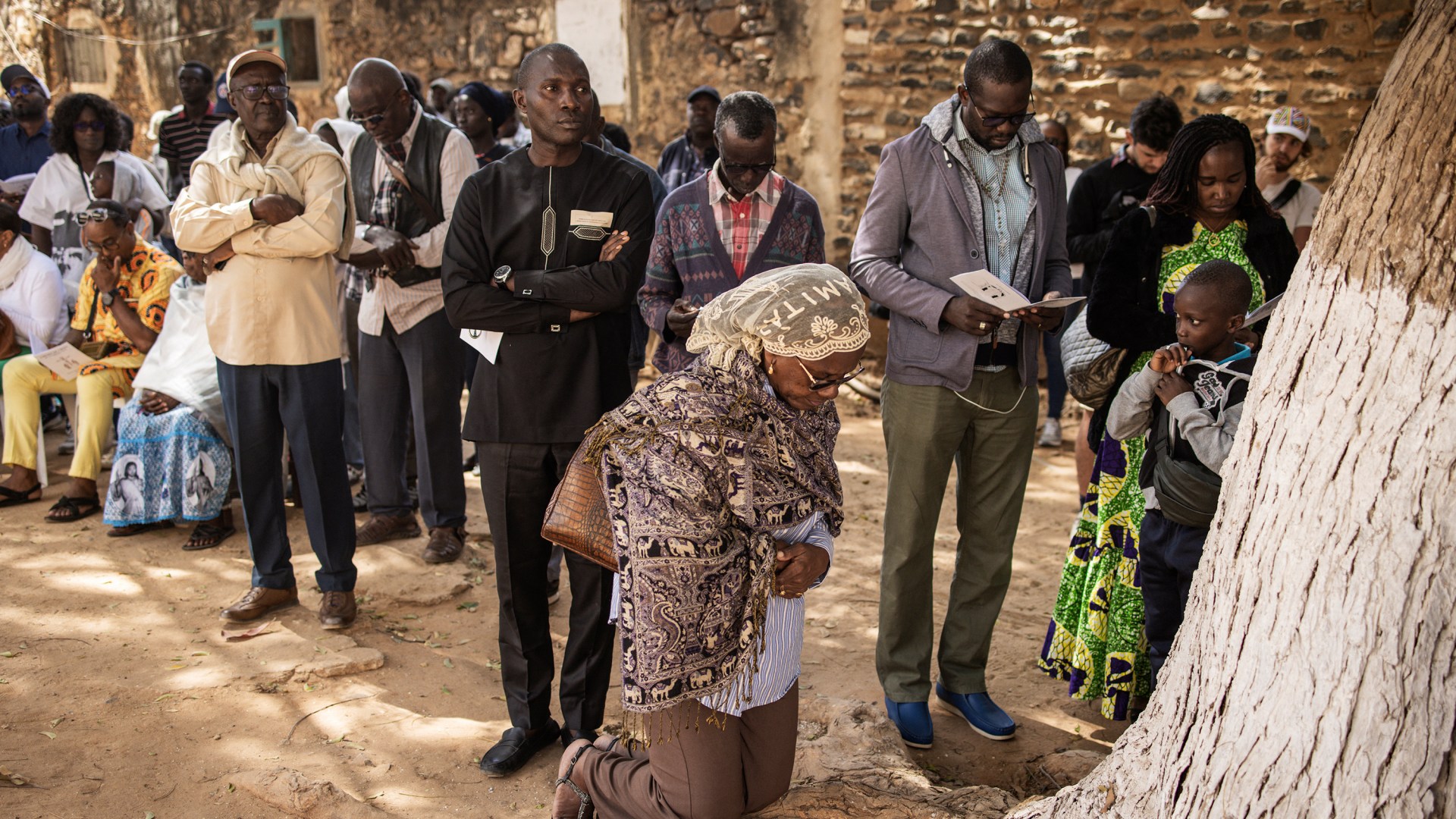In Senegal, Muslims love to share meat. Christians share porridge.
Ending the monthlong Ramadan fast this week, the faithful in the Muslim-majority West African nation invited Christian friends to celebrate Korite (Eid al-Fitr), focus on forgiveness and reconciliation, and share a wholesome meal of chicken.
A little over two months later during Tabaski (Eid al-Adha), the mutton from sheep slaughtered in commemoration of Abraham’s sacrificing of his son will likewise be distributed to Christian neighbors. (Both feasts follow the lunar calendar and change dates each year.)
But for Christians, the sign of interfaith unity is the porridge-like ngalakh.
“Senegal is a country of terranga—‘hospitality’—and the sense of sharing is very high,” said Mignane Ndour, vice president of the Assemblies of God churches in Senegal. “Porridge has become our means of strengthening relations between Christians and Muslims.”
Sources told CT the holiday treat is highly anticipated.
In the local language, ngalakh means “to make porridge,” and the chilled dessert marks the end of Lent. Between 3 and 5 percent of Senegal’s 18 million people are Christians—the majority Catholic—and families gather to prepare the Easter fare on Good Friday.
Made from peanut cream and monkey bread (the fruit of the famed baobab tree), these core ngalakh ingredients are soaked in water for over an hour before adding the millet flour necessary to thicken the paste. The dessert is then variously seasoned with nutmeg, orange blossom, pineapple, coconut, or raisins.
Tangy and sweet yet savory, the porridge gets its brownish color from the peanut cream.
The Christian community in Senegal traces its origin back to the 15th-century arrival of the Portuguese. And Jacques Seck, a Catholic priest in the capital of Dakar, stated that ngalakh developed during the period of French colonialism as mulatto servant women prepared their masters a meatless meal during the Lenten fast.
Ndour said that over time the tradition extended to Protestants as well.
Its believers numbering only in the thousands, the Protestant Church of Senegal was founded in 1863, becoming more visible in the 1930s. Lutherans came in the 1970s and are the second-largest Christian denomination today, alongside Methodists, Presbyterians, and newer evangelical groups.
But for some, ngalakh is controversial.
“Evangelicals do not share this tradition,” said Pierre Teixeira, editor in chief of Yeesu Le Journal, an interdenominational monthly publication. “But the rare churches that practice it broadcast a film on the gospel before distribution.”
Teixeira, a former Baptist pastor, grew up in a Catholic home in Dakar. Recalling the porridge from his youth, he said it was a symbol of communion that commemorates the death of Jesus on the cross. But today the focus of Senegalese evangelicals is on societal integration. In the past 20 years, the small community has seen an increase in its students at university and efforts by believers to influence the marketplace and political arenas.
Ndour, raised in a Muslim home, believes the two activities are compatible.
“Easter is not simply the feast of Catholics, and ngalakh is the feast of all Senegalese,” he said. “It represents a path of understanding, through religion.”
While Protestants value the practice of terranga, some view an interfaith dessert as an extrabiblical barrier to evangelism that should be dropped as a local tradition. Others, Ndour said, do not distribute the porridge to Muslim neighbors lest they be obliged to reciprocally share in the Muslim Tabaski feast, which they view as prohibited given local interpretation of Paul’s warning about meat sacrificed to idols.
But many cherish the social custom within Senegal’s lauded religious tolerance.
“Ngalakh is a delectable dish meticulously crafted with love and passion,” said Eloi Dogue, vice president of Africa operations for Our Daily Bread Ministries. “It serves as a symbol of unity and goodwill among neighbors, particularly our Muslim friends.”
Islam came to Senegal in the 11th century through trade and spread through a combination of conquest and heartfelt conversion. Rejection of colonialism attracted many locals into Sufi orders emphasizing a mystical interpretation of Islam, which merged Senegalese and Muslim identities.
Other Senegalese interacted closely with the foreign authorities and assimilated their culture. But the French concept of laïcité combined easily with Sufi religious tolerance, and the Senegal constitution’s first article declares the nation to be a “secular, democratic, and social republic.” Its first president was a Catholic, and voluntary religious education at school allows parents—often in mixed marriages—to educate their children in the faith of their choice or none at all.
But Dogue, also international director of Dekina Ministries and former evangelism and missions executive secretary for the Association of Evangelicals in Africa, said the value of ngalakh is not only in coexistence.
“Yes, it is originally a Catholic tradition,” he said. “But it is also a means of fostering outreach and building bridges of understanding, bearing witness about God’s care, love, and goodness.”
Americans, he added, could similarly invite Muslim neighbors over to share their Thanksgiving meals.
Ndour grew up mostly ignorant of ngalakh in his village 95 miles southeast of Dakar. Aware of the local Lutheran mission headquarters, his family belonged to the Mouride Sufi order. He first recalls trying the porridge dish at age 15; however, it was life at university in the capital that introduced him to its true meaning.
But there he was also introduced to the assurance of salvation in Christ. An evangelical pastor shared his faith, and Ndour has been sharing his since. In this, the holiday meal can be used as a bridge.
“Ngalakh opens doors that were previously closed,” he said. “This can then allow us to talk about the true Easter sacrifice—which is Jesus.”











